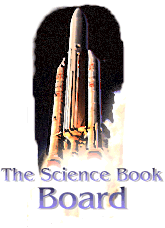 You
can purchase this book clicking here. You
can purchase this book clicking here.
If you wish to purchase
further titles already reviewed here, please return each
time to SBB. Using the direct links available
at our site is easier than searching by title, author, or
ISBN number.

EDITORIAL
INFORMATION
Electroweak
Phase Transition and the Early Universe, a NATO Advanced
Research Workshop, was held March 23-25, 1994 at the
Hotel Tivoli in Sintra, Portugal. The meeting was
co-sponsored by three other Lisbon-based institutions:
the Fundašao Gulbenkian, JNICT and GTAE. The workshop
brought together a large number of theoretical physicists
who are actively researching topics relevant to the
understanding of the standard model of electroweak
interactions in the early universe.
(Extracted from the preface, written by the
editors).

GENERAL
TABLE OF CONTENTS
- -Preface.
- -Contents.
- -3-D Physics and the
Electroweak Phase Transition: Perturbation Theory
and Lattice Monte Carlo Analysis.
-Dynamical Evolution of the Electroweak Phase
Transition.
-Gauge Invariant Effective Potential and 4-D
Lattice Simulations of the Electroweak Phase
Transition.
-On the Strength of First Order Phase
Transitions.
-An Overview of the ▀-Expansion and the
Electroweak Phase Transition.
-The Electroweak Phase Transition in Extended
Models.
-Some Non-Perturbative Aspects of the Electroweak
Phase Transition.
-Electroweak Baryogenesis: Problems and
Prospects.
-A Note on Spontaneous Baryogenesis.
-Tau Leptons and Top Quarks in a 'non-local'
Baryogenesis at the Electroweak Phase Transition.
-Preventing Baryon Washout with a Z'.
-Baryogenesis from a Primordial Lepton Asymmetry.
-Electroweak Phase Changes in Two Higgs Models.
-On Primordial Magnetic Fields.
-Another Look at the Electroweak Vortex Solution.
-Electroweak Baryogenesis with Topological
Defects.
-Electroweak Strings, Sphalerons and Magnetic
Fields.
-Electroweak Strings Produce Baryons.
-Electromagnetic Strings and Topology.
-Sphalerons and Strings.
-Existence and Stability of Spinning Embedded
Vortices.
-Effective Potential for the Wilson Line in the
Standard Model.
-Fluctuations at Phase Transitions.
-High Temperature Field Theory Beyond
Perturbation Theory.
-High Temperature Phase Transitions with the
Effective Average Action.
-Exact Renormalization Group Equations for Gauge
Theories.
-Environmentally Friendly Renormalization in
Finite-Temperature Field Theory.
-Sphaleron-like Transition at High Temperatures.
-Fluctuation Corrections to the Transition Rate
of the Electroweak Sphaleron.
-Hot Abelian Higgs Model: Real-Time Properties.
-Non-Equilibrium Evolution of Disoriented Chiral
Condensates.
-Non-Equlibrium Quantum Field Evolution in FRW
Cosmologies.
-A Report on Quantum Spinodal Decomposition.
-NonPerturbative Evaluation of the Sphaleron
Transition Rate.
-Bubble Nucleation in Theories with Symmetry
Breaking by Radiative Corrections.
-One-Loop Corrections to the Bubble Nucleation
Rate at Finite Temperature.
-Hydrodynamics of Bubble Growth.
-Quantum Scattering and Classical Solutions.
-Spherical Shells of Classical Gauge Field and
Their Topological Charge as a Perturbative
Expansion.
-In Search of Classical Trajectories.
-Possible Instability of the Effective Potential
in a Scalar Model due to Extra Dimensions.
-Gravitinos in the Early Universe.
-On the Problem of the Magnetic Mass.
-Next-to-Leading Order Debye-Screening in
Spontaneously Broken Gauge Theories.
-Hierarchy of Effective Models.
-Derivative Corrections in a Scalar Theory.
- -Index.

OUR
REVIEW
Plenum Publishing, through its
division Plenum Press from New York, offers us a
compilation of the papers presented in the aforementioned
Workshop. These papers are well in the forefront of
current research in astrophyshics, aimed at
professionals, as well as advanced students, who want to
know about current research trends and the theoretical
results obtained so far. All the themes intending to
study in depth the description of the first instants of
life in our universe are fascinating in and of
themselves, partly because of the amount of work still to
be done in this respect. The articles we will find in
this book give us a clear idea of how uncertain some of
the aspects of the standard model are, as well as the
differences in opinion on the part of the scientists who
have cooperated in this work. All of them support their
statements armed with the necessary mathematical
paraphernalia and precise technical references, which
contributes to making this volume a product to be used as
a basic textbook in the next years.
|
![]()

![]()